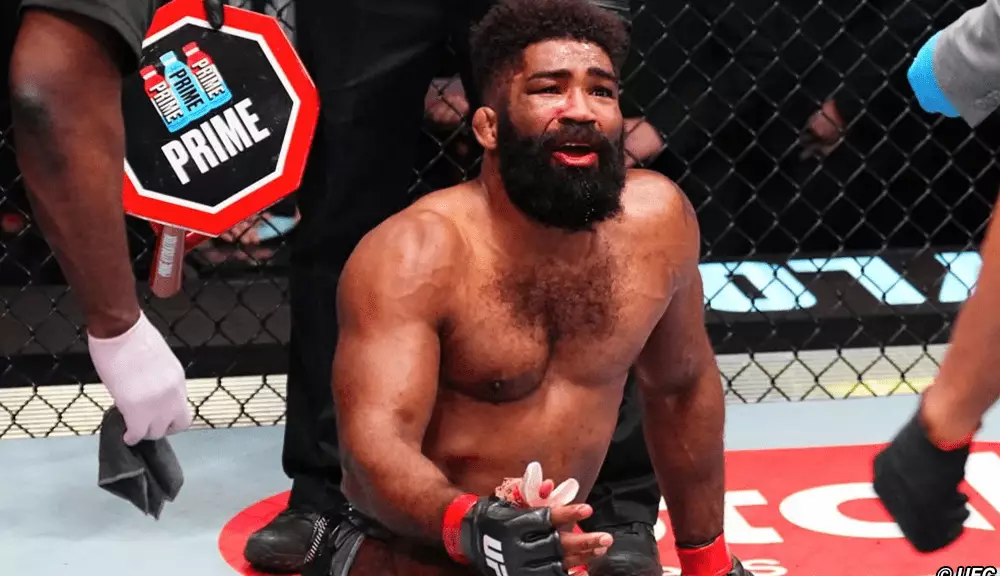In mixed martial arts (MMA), the role of the referee is pivotal, often determining the outcome of a fight within seconds. The recent match between Chris Curtis and Roman Kopylov at UFC Fight Night 249 is a prime example of how referee decisions can spark extensive debate among fighters, fans, and analysts alike. This article delves into the contentious stoppage of the fight and the perspectives that surround it.
During the match at the UFC Apex, Curtis, who holds a professional record of 31 wins and 12 losses, found himself on the receiving end of a well-timed head kick from Kopylov towards the end of the third round. At the moment the strike landed, there was only one second left on the clock, and the impact sent Curtis crashing to the canvas. Kopylov, sensing his opponent’s vulnerability, turned away, which seemed to signal the end of the contest. This is where referee Mark Smith intervened, stopping the fight and awarding the victory to Kopylov.
However, the circumstances leading up to this stoppage invite scrutiny. Curtis was indeed knocked down but was not momentarily incapacitated; he exhibited awareness by directing his gaze toward Kopylov, suggesting he remained conscious and capable of defending himself. The unusual nature of Kopylov’s retreat further complicates the scenario, as it could be argued that Smith made a premature decision in halting the match at such a critical moment.
Referee Mark Smith faced immediate backlash for his decision, with Curtis expressing outrage following the fight. John McCarthy, a former referee and well-respected figure in MMA, echoed Curtis’s sentiment on his “Weighing-In” podcast. McCarthy pointed out that a referee’s fundamental responsibility is to ensure fighters can defend themselves. In this instance, Kopylov’s withdrawal gave Curtis a chance to regain his composure and potentially respond to the situation.
McCarthy explained that while he recognized Kopylov’s dominance throughout the third round, the timing of the stoppage was dubious. “If Kopylov had gone after Chris, it’s a good stoppage,” he stated, yet he argued that Curtis was not in a position where he could not defend himself. The essence of the argument rests on whether Curtis was truly out of the fight or merely stunned moments before the bout’s conclusion.
While Kopylov supported Smith’s decision, Curtis’s post-fight statements reflected his frustration at the abrupt ending to what could have been a thrilling finish. Such reactions are common in MMA, where fighters are acutely aware of their capabilities and often feel a sense of injustice when the referee decides their fate prematurely.
This incident highlights a critical dialogue within the sport regarding the standards of officiating and the criteria used to determine the safety of fighters. As MMA continues to grow, fostering an environment where both safety and fairness are prioritized will be essential. Ultimately, referee decisions are a pivotal aspect of the sport, but they must be approached with as much clarity and decisiveness as the fighters themselves display in the cage.
The controversy surrounding the Curtis versus Kopylov fight serves as an important case study for the MMA community, illustrating the need for ongoing discussion about the criteria and methods employed in officiating, thereby ensuring both fighter safety and competitive integrity.

